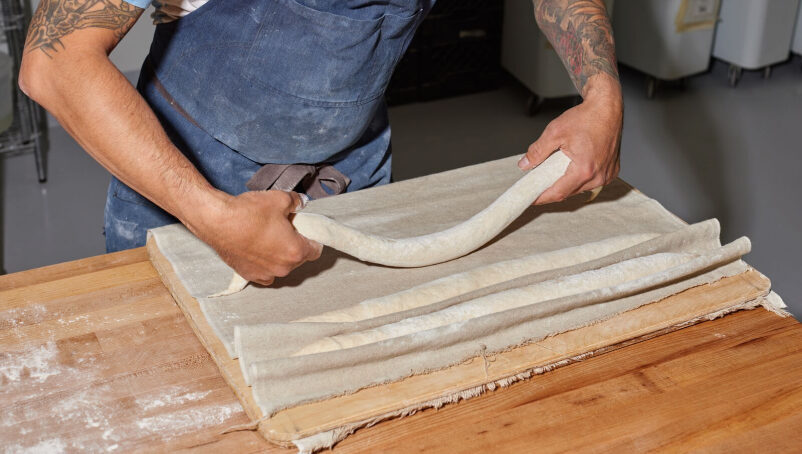Who needs a Utah food handlers permit?
In Utah, every employee who works with or around food needs a food handler certification. Utah food handlers must complete an approved food handling course, pass the test and obtain a food handler certificate. According to the Utah Health Code, this must be done within 14 days of employment.
Utah considers food handlers to include servers, bussers, chefs, kitchen staff, bartenders and other employees at food service establishments.
How to get a food handlers permit in Utah
Food service workers must follow these steps to earn their food handler certification. First, workers must complete a food handling course offered by an approved food handler training provider and pass the exam with a minimum score of 75%.
An approved Utah food handler course must include at least 75 minutes of training and a 50-question exam. The training session and exam should take approximately two hours to complete.
Approved food handler courses cover several topics related to safe food handling, such as:
- Foodborne illness prevention.
- Cleaning and sanitation.
- Personal hygiene and handwashing.
- Food allergen management.
- Contamination and cross-contamination.
- Time and temperature requirements.
After completing the food handling course, they will receive a food handler certificate valid for 30 days. Once the food handler has earned this certificate, they must apply for a food handler permit with your local health department. Finally, a local health officer will issue the official Utah food handlers permit.
Once your employee passes an approved food handler course and applies for a Utah food handlers permit at your local health department, they will receive a physical card. This card serves as official proof of their status as a certified food handler. Valid across the entire state of Utah, the food handler permit includes vital information such as:
- The food handler’s name
- The permit’s expiration date
- An identification number
- The name of the issuing local health department
- The Utah state seal
It is your responsibility as an employer to keep a copy of each of your employee’s food handler permits on file. You must also be prepared to present these permits when requested by a local health officer.
Keep in mind that food handlers receive a temporary food handler certificate and must apply for an official food handlers permit with their local health department. This additional step is important to note, as it may extend the time before they receive their official food handler permit card.
Utah food handlers permit cards are valid for three years from the date they are issued. To renew these permits, workers must retake and pass an approved training course every three years. After passing the exam, they will receive a new food handler permit from a local health officer.
Insurance for Utah restaurants, caterers, cafes and food service businesses
Ensuring the right Utah business insurance is crucial for restaurants and food service businesses, providing protection against a range of everyday risks. Consider these essential insurance types:
General liability insurance
General liability insurance can offer some financial protection against common accidents, like third-party injuries or property damage.
You can also get food service general liability insurance for foodborne illness coverage, which may help cover costs if a customer gets sick from contaminated food or food that was prepared incorrectly.
Workers’ compensation insurance
Utah workers’ compensation insurance can help cover some costs of workplace injuries, such as lost wages and medical bills for your staff. It’s a state requirement for most employers.
Commercial property insurance
Help protect your business’s physical assets, including equipment, inventory, and property with commercial property insurance. It’s invaluable in cases of damage from events like fires or floods, covering repair or replacement costs.
Commercial auto insurance
Essential for businesses using vehicles, commercial auto insurance can cover damages and medical expenses from vehicle accidents. Utah law mandates minimum coverage of $25,000 per person and $65,000 per accident of bodily injury protection and $15,000 for property damage.
Exceptions to Utah food handlers permit rules
A few types of food service establishments are also exempt from the state’s food handler permit requirements, including:
- Temporary event eateries approved by local health departments.
- Vendors serving only commercially pre-packaged foods or beverages.
- Health care facilities.
- Bed and breakfasts that serve only continental breakfast.
- Child care providers.
- Back country food service establishments.
- Special Event Booths at school sports events and church functions sponsored by municipalities or non-profits.
Along with ensuring compliance with state law, you can help protect your business by making sure your workers have a food handlers permit. Utah restaurants can benefit from a reduced risk of foodborne illness since employees are trained in proper food preparation and handling techniques.
How much does a Utah food handlers permit cost?
Food service workers can complete food handler courses in person or online through any approved food handler training provider in Utah. Most courses cost less than $20, and workers must pay a $15 fee to their local health department for their official food handler permit.
Some employers choose to cover the course fee or certification cost, but this is optional. The food handler permit is still valid if the employee works for another food establishment in Utah.
Utah food handlers permit reciprocity
In Utah, all county health departments issue food handler permits that are valid throughout the state. However, Utah generally does not recognize food handler cards issued in other states.
The only exception to this no-reciprocity rule is for food handler permits issued to backcountry outfitters by the United States Department of the Interior or public health authority in Arizona, Colorado, Nevada or Wyoming. According to the Utah Office of Administrative Rules, this exception applies only to food handling at backcountry food establishments.
Food handlers permit vs. Certified Food Safety Manager
One notable exception to the food handling permit requirements is: They do not apply to Certified Food Safety Managers in the state. These employees complete a separate certification process, monitor food handlers’ compliance with health department safety rules and ensure food safety within their establishment.
Each food establishment in Utah must have at least one full-time certified food manager working at each business location. However, they do not need to be present during all hours of operation. If your food service business doesn’t have employees, you will need to get this certification yourself.
How NEXT helps support Utah restaurants, cafes, caterers and food service
NEXT has customized Utah restaurant insurance policies, catering to the needs of small businesses and self-employed entrepreneurs.
Get a personalized insurance quote, review coverage options, choose your policies and download a certificate of insurance — all in about 10 minutes. Access your policy 24/7 via web or mobile app.
Plus, our dedicated team of licensed insurance advisors is always on hand to guide you through any question.
Start a free quote with NEXT.






